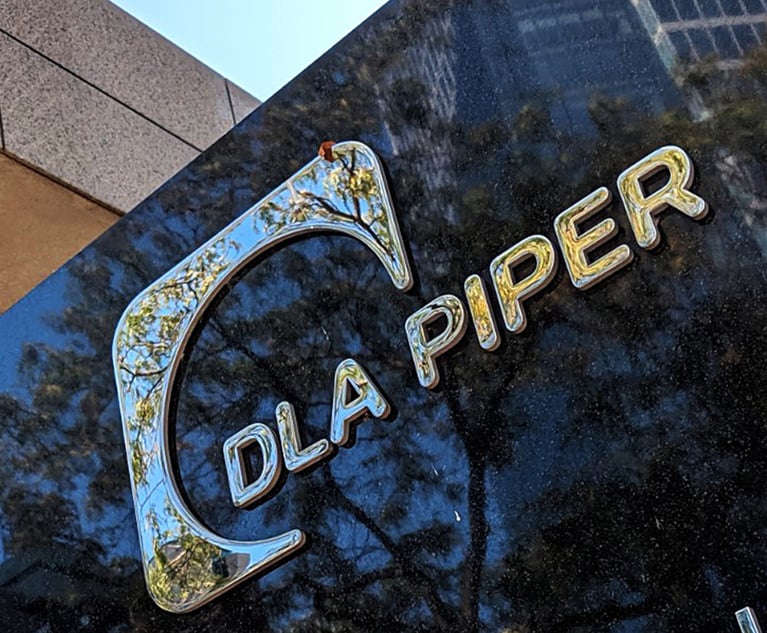TAKE NOTE: Texas No Longer Needs Your Consent for an Experimental Jury Trial, Thanks to Emergency Order
Texas trial lawyers have mixed feelings about a new Texas Supreme Court COVID-19 emergency order that deletes a requirement that lawyers and litigants have to consent before their cases move to an experimental jury trial.
June 30, 2020 at 01:52 PM
5 minute read

The Texas courts that experiment with jury trials this summer will no longer depend upon the consent of attorneys and litigants to move to trial under a Texas Supreme Court emergency order issued Monday.
And litigators have mixed feelings about the court taking away their ability to consent to a jury trial experiment. For some, being forced into a jury trial experiment—perhaps a remote trial, in-person with precautions, or some hybrid of both—might push them to opt for a bench trial instead.
The high court had banned most jury trials through Aug. 1, except for some limited, controlled experiments, which would have gone forward only with consent from the parties. But the court's 18th emergency order removed the requirement to get the litigants' consent. It also extended the jury trial ban—except the experiments—through Sept. 1.
"If I were faced with the choice of having to participate in a mandatory experimental jury trial with a non-diverse online jury pool, I might well advise my client to agree to try the case to the judge instead, if I thought that the judge was fair and impartial," said Dallas attorney Quentin Brogdon.
He noted that he understands the court system is "between a rock and a hard place" as COVID-19 cases spike in Texas.
|
Related: COVID Could Prompt Litigants to Choose Bench Trials Over Juries, Thanks to Six-Month Backlog of Civil Cases
 Quentin Brogdon
Quentin Brogdon"On the one hand, we need to get the courts reopened. On the other hand, we cannot and should not trample on the rights of the litigants at the courthouse," said Brogdon, partner in Crain Brogdon Rogers in Dallas. "It is one thing to require a nonbinding summary jury trial between litigants, but it is quite another thing to require a binding online trial without the consent of the litigants. We need to tread very carefully before we start mandating radical experimentation."
 Pat Mizell
Pat Mizell
Houston trial lawyer Pat Mizell, however, said he's fine with the change.
"Presumably the jury trial would be a small one- or two-day matter, and done by Zoom. The trial judge could still use discretion and reset the case if someone had an articulate objection," said Mizell, partner in Vinson & Elkins. "I think we are in this predicament until there is a vaccine, so we've got to figure out something to keep things moving."
 David Beck
David Beck
Beck Redden partner David Beck of Houston comes down somewhere in the middle. If a lawyer was scheduled for an experimental jury trial without consent, but felt that it wasn't safe for the client, jurors or himself, the lawyer would do whatever was possible to get a continuance or reschedule the matter, he explained. Beck said he would trust judges to use their discretion and only proceed if it were safe.
"The fact that they are not requiring consent does not mean that the individual judges will proceed if there's strenuous objections by the parties and their counsel in the case," Beck explained. "The way I read the Supreme Court order, the fact that consent was deleted means consent is not required, but it still doesn't mean a trial judge does not have discretion about the cases. I think it gives the judges the latitude to experiment."
This content has been archived. It is available through our partners, LexisNexis® and Bloomberg Law.
To view this content, please continue to their sites.
Not a Lexis Subscriber?
Subscribe Now
Not a Bloomberg Law Subscriber?
Subscribe Now
NOT FOR REPRINT
© 2024 ALM Global, LLC, All Rights Reserved. Request academic re-use from www.copyright.com. All other uses, submit a request to [email protected]. For more information visit Asset & Logo Licensing.
You Might Like
View All
From ‘Deep Sadness’ to Little Concern, Gaetz’s Nomination Draws Sharp Reaction From Lawyers
7 minute read
DLA Piper Sued by 2 Houston Companies, Alleging a 'Fake Lawyer' Represented Them in Argentina
3 minute read

Law Firms Mentioned
Trending Stories
Who Got The Work
Michael G. Bongiorno, Andrew Scott Dulberg and Elizabeth E. Driscoll from Wilmer Cutler Pickering Hale and Dorr have stepped in to represent Symbotic Inc., an A.I.-enabled technology platform that focuses on increasing supply chain efficiency, and other defendants in a pending shareholder derivative lawsuit. The case, filed Oct. 2 in Massachusetts District Court by the Brown Law Firm on behalf of Stephen Austen, accuses certain officers and directors of misleading investors in regard to Symbotic's potential for margin growth by failing to disclose that the company was not equipped to timely deploy its systems or manage expenses through project delays. The case, assigned to U.S. District Judge Nathaniel M. Gorton, is 1:24-cv-12522, Austen v. Cohen et al.
Who Got The Work
Edmund Polubinski and Marie Killmond of Davis Polk & Wardwell have entered appearances for data platform software development company MongoDB and other defendants in a pending shareholder derivative lawsuit. The action, filed Oct. 7 in New York Southern District Court by the Brown Law Firm, accuses the company's directors and/or officers of falsely expressing confidence in the company’s restructuring of its sales incentive plan and downplaying the severity of decreases in its upfront commitments. The case is 1:24-cv-07594, Roy v. Ittycheria et al.
Who Got The Work
Amy O. Bruchs and Kurt F. Ellison of Michael Best & Friedrich have entered appearances for Epic Systems Corp. in a pending employment discrimination lawsuit. The suit was filed Sept. 7 in Wisconsin Western District Court by Levine Eisberner LLC and Siri & Glimstad on behalf of a project manager who claims that he was wrongfully terminated after applying for a religious exemption to the defendant's COVID-19 vaccine mandate. The case, assigned to U.S. Magistrate Judge Anita Marie Boor, is 3:24-cv-00630, Secker, Nathan v. Epic Systems Corporation.
Who Got The Work
David X. Sullivan, Thomas J. Finn and Gregory A. Hall from McCarter & English have entered appearances for Sunrun Installation Services in a pending civil rights lawsuit. The complaint was filed Sept. 4 in Connecticut District Court by attorney Robert M. Berke on behalf of former employee George Edward Steins, who was arrested and charged with employing an unregistered home improvement salesperson. The complaint alleges that had Sunrun informed the Connecticut Department of Consumer Protection that the plaintiff's employment had ended in 2017 and that he no longer held Sunrun's home improvement contractor license, he would not have been hit with charges, which were dismissed in May 2024. The case, assigned to U.S. District Judge Jeffrey A. Meyer, is 3:24-cv-01423, Steins v. Sunrun, Inc. et al.
Who Got The Work
Greenberg Traurig shareholder Joshua L. Raskin has entered an appearance for boohoo.com UK Ltd. in a pending patent infringement lawsuit. The suit, filed Sept. 3 in Texas Eastern District Court by Rozier Hardt McDonough on behalf of Alto Dynamics, asserts five patents related to an online shopping platform. The case, assigned to U.S. District Judge Rodney Gilstrap, is 2:24-cv-00719, Alto Dynamics, LLC v. boohoo.com UK Limited.
Featured Firms
Law Offices of Gary Martin Hays & Associates, P.C.
(470) 294-1674
Law Offices of Mark E. Salomone
(857) 444-6468
Smith & Hassler
(713) 739-1250






